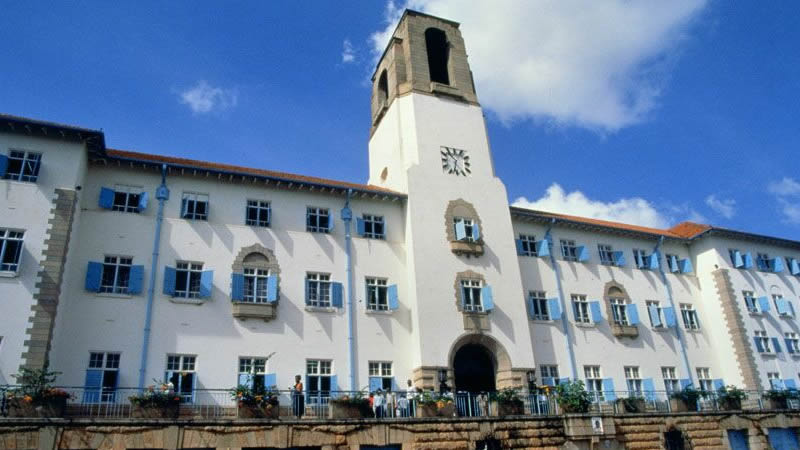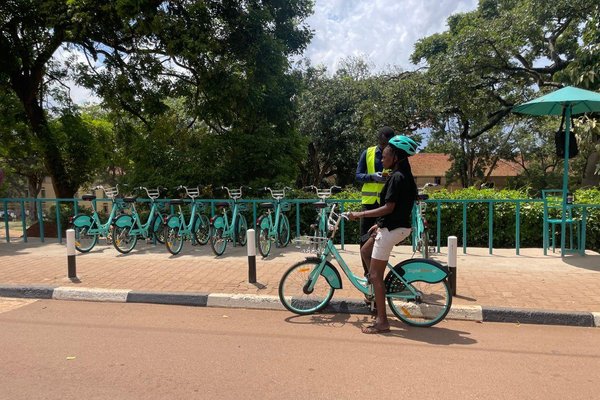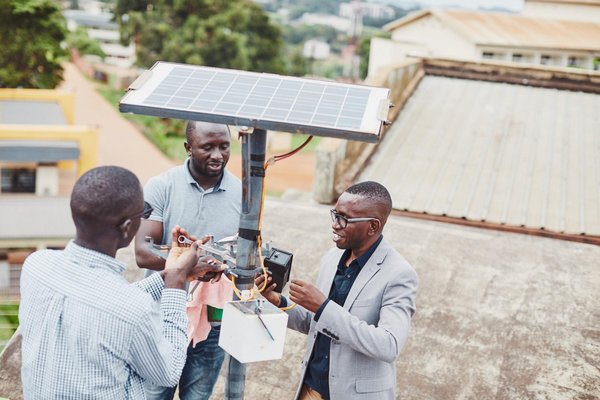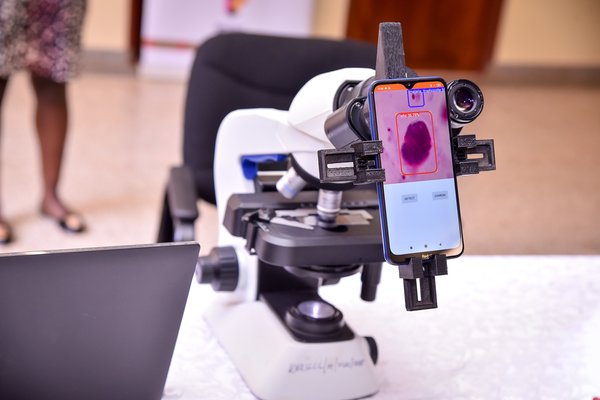By Mark Wamai
For most secondary school students, the prospect of joining university is quite exciting. The thought of finally being able to enjoy unlimited freedom as well as hands-on learning and experimentation for the more academically inclined is quite thrilling. For David Tusubira, this fire was stoked during his A-Level at St. Mary’s College Kisubi, when he got involved in a robotics programme when the iLabs@Mak project as part of their outreach programme visited his school. The hands-on approach adopted by the College of Engineering, Design, Art and Technology (CEDAT)-based project not only made learning engaging but also sparked Tusubira’s interest in automation.
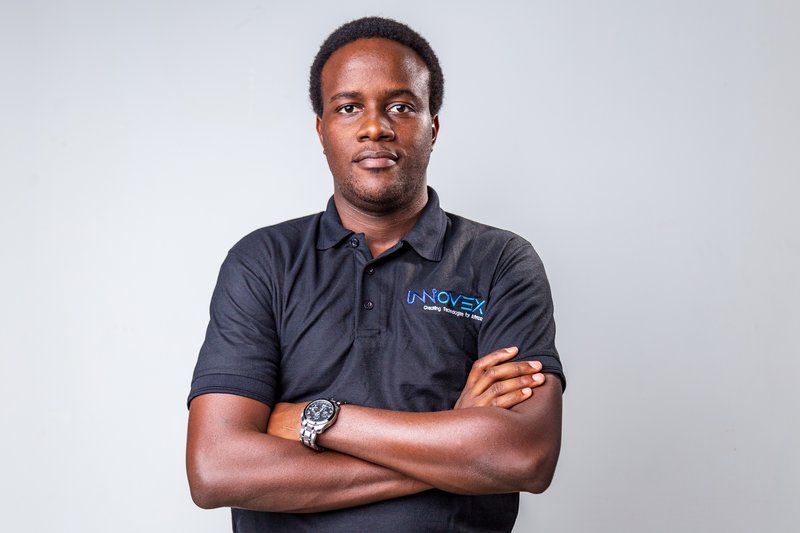
David Tusubira
“My best done subjects in high school were Math and Physics, and I knew that I wanted to do some form of engineering. Electrical Engineering happened to be the best course to do in order to maintain exposure to and pursue my interest in automation, which I accomplished through iLabs@Mak,” Tusubira recalls.
Unfortunately, his academic life at Makerere got off to a not-so-rosy start. Tusubira was very disappointed to discover that the university’s teaching and learning core function, although highly adept at theory, was not so adept at practice. This is in part due to insufficient funding for equipment, lab reagents, technical staff salaries and extracurricular activity.
“As such, Makerere University remains an unexploited institution that can offer more to our community if given more attention and resources,” Tusubira sums up.
What also hit him was when he suffered a setback when he found himself having a re-do a course, through no fault of his. The registration system at the university then was largely manual and any rectification of student errors committed during the registration process required quite some leg work and time. In extreme cases, this predicament rendered the affected students ineligible to sit for an exam, requiring them to re-do the affected course unit when it was next offered. Tusubira experienced this firsthand, which further exacerbated his already shaky faith in the academic part of the institution. (The university has since worked to rectify this problem and on 19th April, 2024, it launched the Digitalization of Academic Records and Processes (DARP) project to ease the storage, retrieval and acquisition of academic documents by her stakeholders).
Oftentimes, it is in the face of great adversity or disappointment that we are forced to embark on the path of self-discovery. In Tusubira’s case, it was while dealing with these setbacks that he decided to focus on self-teaching and honing his technology development skills through iLabs@Mak. He soon discovered that this turn he had taken required more of his time, necessitating him to cut back on the hitherto vibrant social life he enjoyed as a first year student. “I stayed at Akamwesi Hostel in Katanga for all 4 years and enjoyed hanging out multiple times a week but after the first year, I had to focus my attention on technology development.”
By the end of his second year, David’s hard work had paid off. “I had gained enough skill to train others and also help with projects,” he recollects. In 2015 during his third year, David teamed up with two colleagues from iLabs@Mak - Douglas Karugaba and Kabwama Alvin - to found Innovex, a startup that aspired to embed technology components into existing installations. This was so that it could enable clients to monitor the performance of their setups remotely. “Throughout the second half of my time at Makerere, outside academics, I fully immersed myself in doing technology development projects and training engineering students in technology development,” he adds.
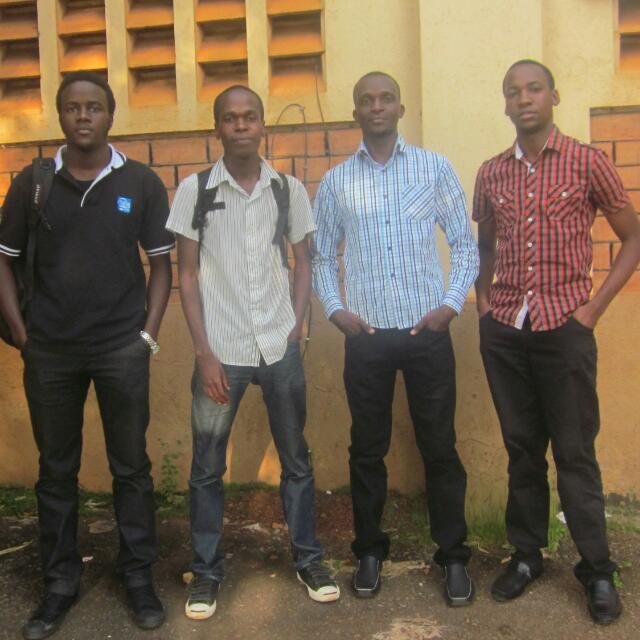
David Tusubira (Left) with INNOVEX 'game changers' at CEDAT
It is perhaps no surprise that Tusubira was interested in engineering as his father is one. His mother on the other hand is a businesswoman and together, they raised David and four other siblings. He attended Kitante Primary School from Primary One to Primary Five and proceeded to Greenhill Academy for Primary Six and Primary Seven. He then went to St. Mary's College Kisubi for all six years of High School, where took Physics, Chemistry, Math and Technical drawing at A-Level. He was admitted to Makerere University for the Bachelor of Science in Electrical Engineering which he completed on time, in June 2016.
Shortly after completing his studies and prior to graduating on 24th February, 2017, Tusubira was offered a job as a graduate research assistant at iLabs@Mak, a position he held until 2019 when the project funding from the Presidential Initiative on Science and Technology came to an end. He undertook the graduate research assistantship alongside his role as Chief Technology Officer of Innovex, a position he holds to-date.
Innovex’s founding and growth offers great hope to budding innovators desirous of following the same career path. Initially incubated by iLabs@Mak, the company, upon finding its footing, moved out of Makerere University to premises in Kamwokya and eventually, Ntinda.
“Innovex is a technology company that develops Internet of Things (IoT) technology primarily for operation and maintenance of off-grid energy installations or appliances. Innovex is also an electronics manufacturer,” Tusubira says proudly, of the company he co-founded.
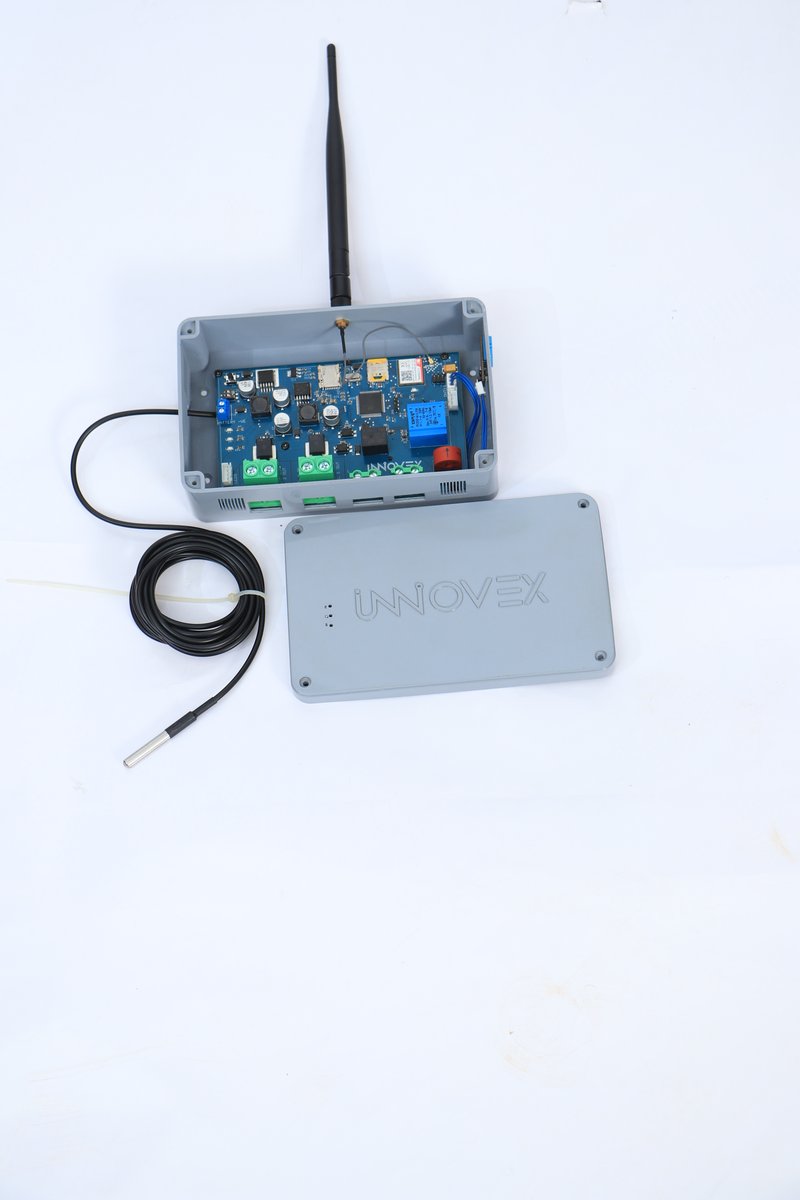
Internet of Things (IoT) Device
Simply put, Innovex develops devices that can be installed alongside power generation setups such as solar installations to help the client monitor how much energy is being generated or which parts of the installations are not working as they ought. The monitoring can be done remotely over the internet from the comfort of the client’s computer or mobile phone without physically setting foot on site. This is particularly helpful for solar distribution companies that avail these products to customers on hire purchase or pay-as-you-go basis and need to remotely monitor proper working order and payments across hundreds of installations.
Thanks to this game changing innovation in the market, in 2019, Tusubira was shortlisted for the Africa Prize for Engineering Innovation (APEI) 2019/2020 cohort courtesy of Innovex. It just didn’t end there for the upcoming innovator. In 2020, he emerged as one of four finalists of the cohort, which spurred him on his next move, nurturing student talent.
“The APEI experience inspired me to maximise my entrepreneurial and innovation spirit. In 2020, I created Dojo Hub, an innovation hub based at CEDAT, Makerere University that seeks to synergise academia and industry by sponsoring and facilitating research that creates practical solutions that can be commercialised at scale,” explained David, who currently serves as the Hub’s CEO.
“Dojo Hub aims to create and incubate spin-off companies from academic research at the university,” he added. David acknowledges that by providing him with a platform in iLabs@Mak that served as a foundation for his career, Makerere University played a pivotal role in his employment journey.
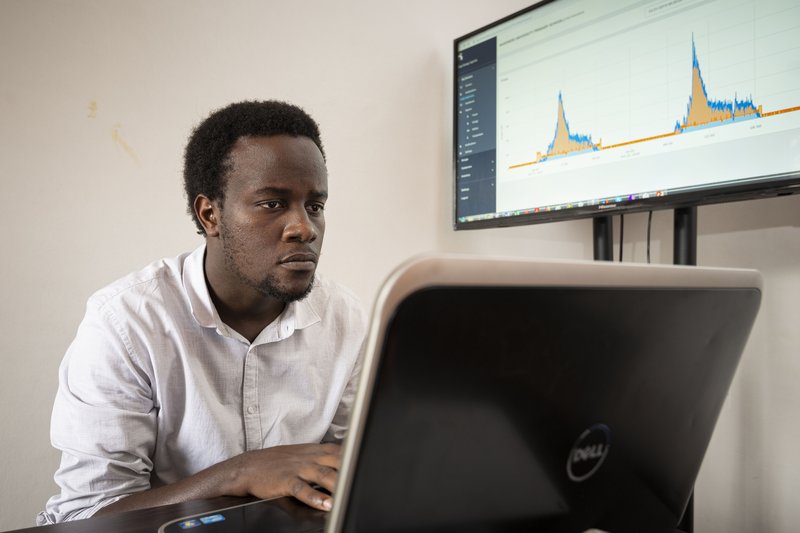
David Tusubira at Work
To-date, Innovex has trained over 300 engineering students in technology development, employed over 50 people and currently employs 25. Furthermore, Innovex has empowered over 40 solar distributors and manufacturers across the African continent with operation and maintenance technology.
On the other hand, Dojo Hub, his 2020 creation, has trained over 50 engineering students in technology development and currently sponsors the iLabs@Mak project. In addition to this giveback, the Hub has facilitated the acquisition of two research grant awards at CEDAT, Makerere University.
Gleaning from his experience in the tech world so far, Tusubira believes that his alma mater Makerere University can do even more to inspire and nurture the next generation of engineers. “Makerere can be more proactive in engaging with industry and foreign academic institutions to increase the exposure of students and teaching staff thus inspiring innovation.”
Furthermore, and sharing from firsthand experience with Dojo Hub, Tusubira adds that, “Innovation hubs can play a critical role in identifying, creating and managing opportunities that facilitate exposure and capacity building.”
Tusubira’s not-so-rosy start to academic life at Makerere University was probably the nudge that he needed to set him on the path to discovering what appears like all he was born to do. “I encourage those who will read my story to value and pursue genuine exposure in order to cultivate true competence in whatever they do. Exposure feeds innovation and innovation yields economic development and empowerment” he concludes.
Related News
![]() Please join hands with the Makerere University Endowment Fund as it works towards attracting & retaining the best faculty, providing scholarships, and investing in cutting-edge research and technology.
Please join hands with the Makerere University Endowment Fund as it works towards attracting & retaining the best faculty, providing scholarships, and investing in cutting-edge research and technology.
